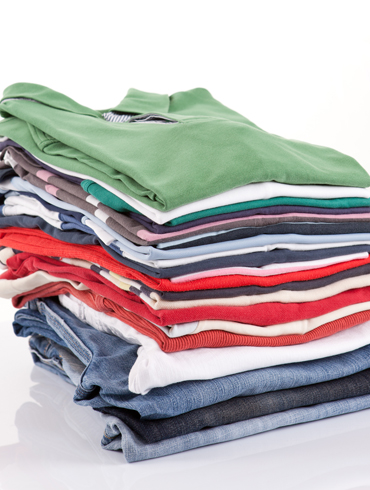About the Clothing Knowledge Hub

WRAP’s vision is a world in which resources are used sustainably. We work uniquely, and by design, in the space between governments, businesses, communities, thinkers and individuals – forging powerful partnerships and delivering ground-breaking initiatives to support more sustainable economies and society. Working with hundreds of businesses and local authorities, trade associations and charities to deliver change.
WRAP coordinates the Sustainable Clothing Action Plan (SCAP). SCAP’s ambition is to improve the sustainability of clothing across its lifecycle. By bringing together industry, government and the third sector we aim to reduce the environmental impact and improve the resource efficiency of the UK’s clothing industry.
One way SCAP can support the clothing industry reach its goals is to raise awareness of the different initiatives, processes and technologies that organisations can use to reduce their environmental impact; which is why we developed the Clothing Knowledge Hub.
For more information about WRAP and SCAP visit http://www.wrap.org.uk/sustainable-textiles/scap
WRAP provide this Knowledge Hub to users subject to the following terms and conditions:
- 1. WRAP does not endorse any specific designers, suppliers, or manufacturers covered by this Knowledge Hub. If you would like to see your product or service listed on this Knowledge Hub, then please contact WRAP by email on [email protected].
- 2. A range of concepts, technologies and processes have been included on this Knowledge Hub with a focus on reducing waste, water and carbon. The purpose of the examples is to inform and inspire the audience; additional research in terms of appropriateness and suitability for specific organisations is highly recommended.
- 3. Varying levels of commercial readiness have been represented in the Hub. Due to the speed of innovation change, this information is date relevant and checking directly with the designer, supplier or manufacturer ahead of use is essential. All concepts, technologies and processes should be fully tested and evaluated by users before use and WRAP cannot be held responsible for anything not meeting the user’s technical specifications.
- 4. Carbon, water and waste are three key factors affecting the sustainability of clothing and are a focus of the metrics information included in this Knowledge Hub. Other environmental, economic and social issues would need consideration for a broader sustainability assessment.
- 5. There may be trade-offs between environmental performance indicators: for example, a technology that reduces carbon emissions may increase water demands. If available evidence does not consider all environmental indicators, such trade-offs cannot be identified.
- 6. Users of this Knowledge Hub use the information at their own risk. Neither WRAP, Sustain Ltd, biov8tion Ltd nor Concept+Design owes nor assumes any duty of care or responsibility to any third party who receives, uses, or who relies on the Knowledge Hub and / or any results derived therefrom. Neither WRAP, Sustain Ltd, biov8tion Ltd nor Concept+Design shall have any liability to any third party for any loss, claims, damages, costs, expenses, or other liabilities arising directly or indirectly from any use of or reliance on the Hub or otherwise in connection with it.
Sustain Ltd, biov8tion Ltd and Concept+Design developed the first version of this Knowledge Hub on behalf of WRAP in Autumn 2013. Further additional updates were made in Summer 2017.